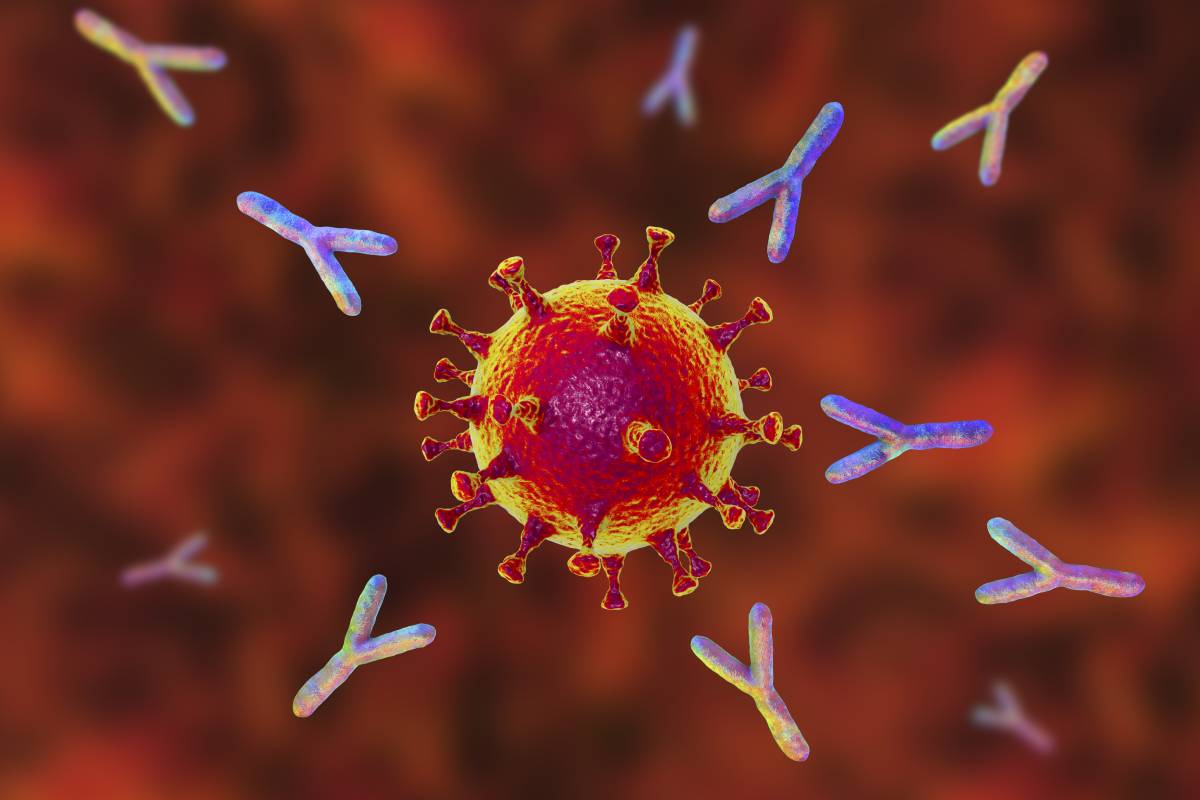Antibody Persistence After COVID-19 Vaccine

The coronavirus pandemic has been the most pressing public and global health issue for over a year now. Fortunately, with the diligence of the scientific community, vaccines were developed at unprecedented speeds and authorized for emergency use. As of early May, 243 million doses had been administered in the United States, and more than 30% of the population was fully vaccinated [1]. Researchers are now interested in how long the vaccine will offer protection against the virus by detecting antibody persistence in subjects after COVID-19 vaccine administration. These ongoing studies provide valuable insight to determine whether or not booster shots will be required in the near future.
An ongoing trial published in The New England Journal of Medicine indicates that the Moderna mRNA-1273 vaccine elicited antibodies in subjects that persisted through six months after receiving the second dose. By using receptor-binding domain ELISA, pseudovirus neutralization assay, and live-virus neutralization assay, antibody activity was measured six months after the second dose. Results show that antibody activity remained high in all age groups; however, when using more sensitive assays, antibody activity was lower in adults 56 years and older compared to adults from 18 to 55 years of age [2]. Pfizer is also conducting an ongoing study with 46,307 participants on its BNT162b2 COVID-19 vaccine’s efficacy and safety. Pfizer announced that its vaccine is 91.3% effective against SARS-CoV-2 up to six months after the second dose as well. Efficacy was high among all demographics including age, gender, and race [3]. The conclusion of these two studies is not that the Moderna and Pfizer vaccines offer protection only up to six months, but that they offer protection for at least six months; currently, data is limited to this timeframe since COVID-19 vaccination has only begun recently. Both studies are ongoing, and subjects will continue to be tested for COVID-19 antibody persistence past the six month mark.
While most studies focus on COVID-19 antibody persistence, a study conducted by Goel et al. highlighted that immune response to infection or vaccination results in not only the production of antibodies to provide rapid serological immunity, but also the generation of long-lived memory B cells responsible for triggering recall responses. When antibodies fail to protect against viral attacks, memory B cells can produce new antibody secreting cells, so the study measured both antibody responses and memory B cell responses to COVID-19 vaccines in subjects who have never been infected and subjects who have recovered from SARS-CoV-2 infection. At baseline, as expected, there were no IgG antibodies detected for full-length spike protein or the spike receptor binding domain in SARS-CoV-2 naive participants. After the first dose, these participants had a significant increase in antibodies, and this increase was further elevated after the second dose. In SARS-CoV-2 recovered participants, the first dose elicited a significant boost in antibodies; however, the second dose had no effect on antibody level. Similar results were found for memory B cell levels. Memory B cells were induced fully after two doses for SARS-CoV-2 naive patients. On the contrary, only one dose was required to elicit the same level of memory B cells in SARS-CoV-2 recovered patients. This study emphasizes the importance of receiving both doses of the vaccine for people who have never been infected by the virus [4].
With the mass distribution of COVID-19 vaccines in the country, return to a normal life seems possible in the near future. Current studies reveal that antibodies elicited by the Moderna and Pfizer vaccines persist up to six months, but this number could increase as more data surfaces. Further investigation will also reveal when and if a booster dose will be required.
References
1. COVID-19 Vaccinations in the United States. CDC. https://covid.cdc.gov/covid-data-tracker/#vaccinations
2. Doria-Rose, N., Suthar, M.S., Makowski, M., et al. Antibody persistence through 6 months after the second dose of mRNA-1273 vaccine for Covid-19. N Engl J Med. Published online April 6, 2021. doi: 10.1056/NEJMc2103916.
3. Pfizer And BioNTech Confirm High Efficacy And No Serious Safety Concerns Through Up To Six Months Following Second Dose In Updated Topline Analysis Of Landmark Covid-19 Vaccine Study. Pfizer, Inc. (April 1, 2021). https://www.pfizer.com/news/press-release/press-release-detail/pfizer-and-biontech-confirm-high-efficacy-and-no-serious
4. Goel, R., Apostolidis, S., Painter, M., et al (2021). Distinct antibody and memory B cell responses in SARS-CoV-2 naïve and recovered individuals following mRNA vaccination. Science Immunology, Vol. 6, Issue 58. doi: 10.1126/sciimmunol.abi6950
